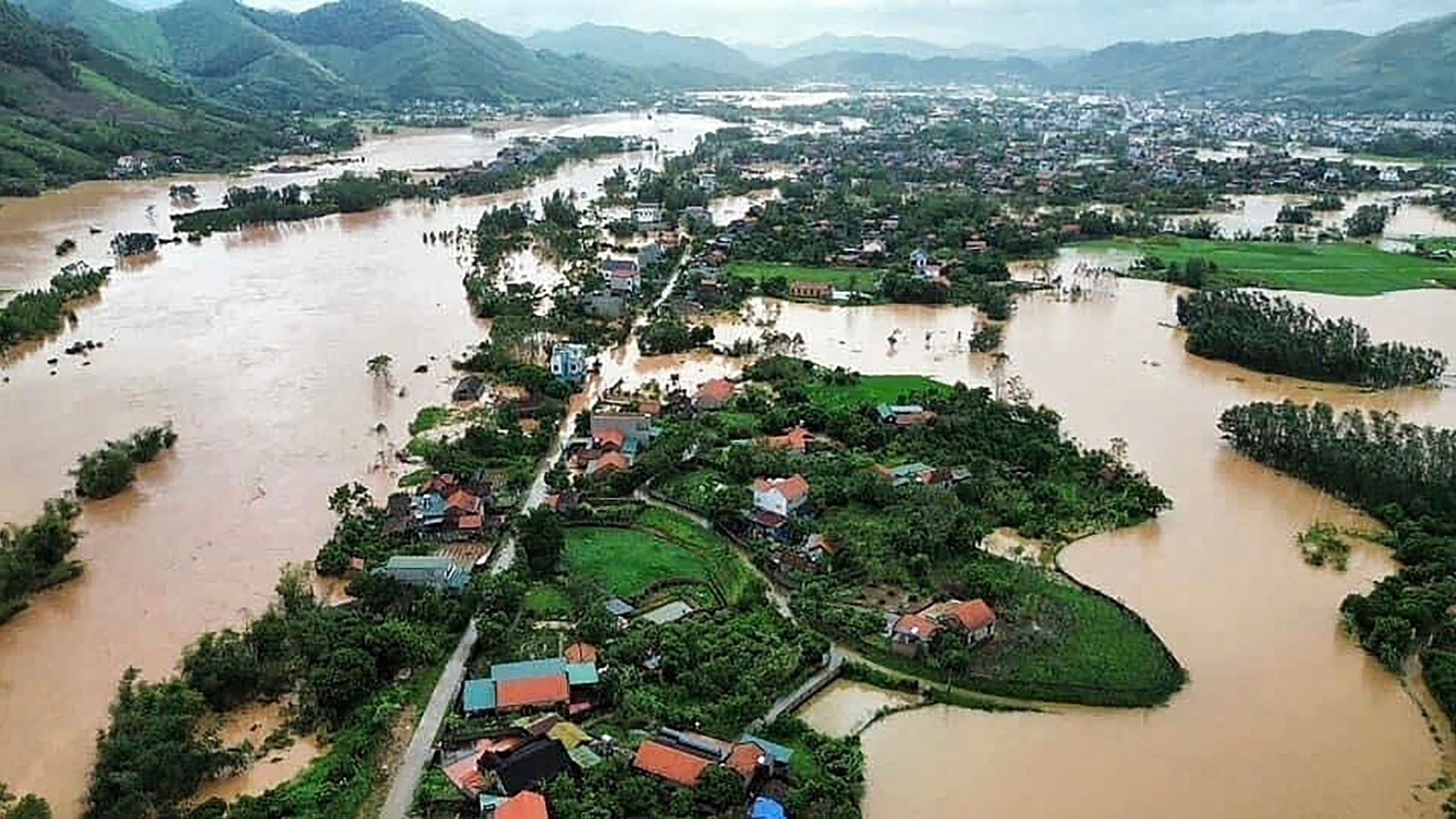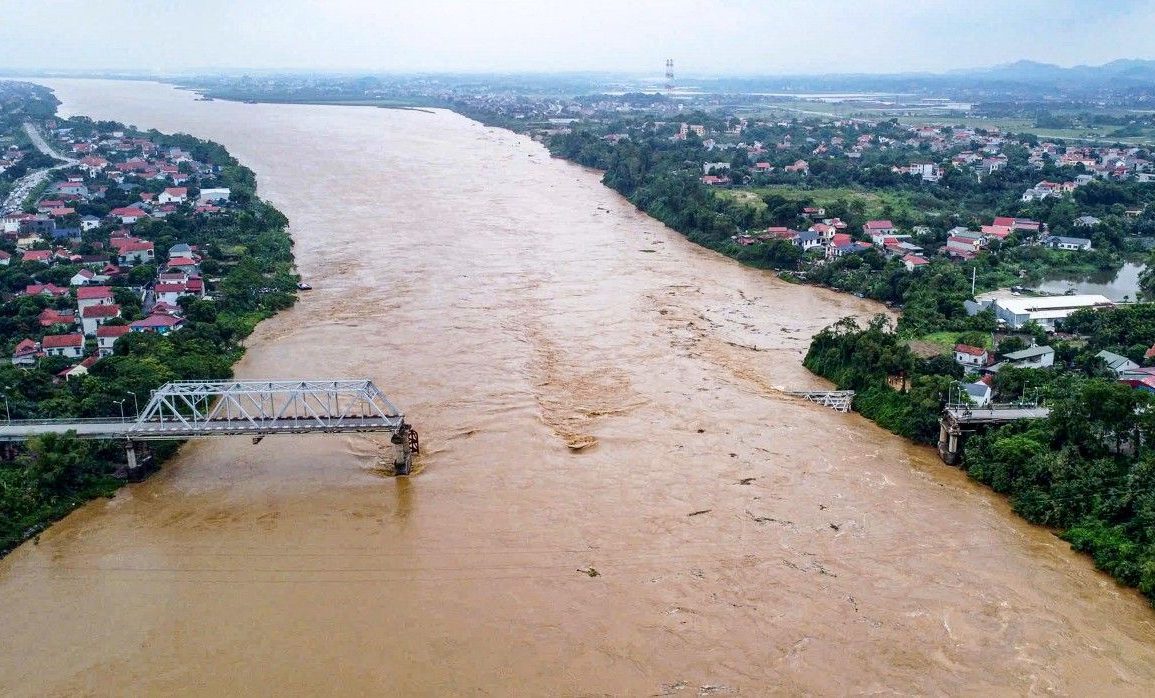On Wednesday, September 11, parts of Vietnam remained deeply submerged after Typhoon Yagi struck the country with fierce winds and torrential rainfall, leaving behind widespread devastation.
In Thai Nguyen, located about 50 miles from Hanoi, residents were seen paddling canoes through flooded streets, while others attempted to salvage whatever remained of their belongings.
One man described the flood as the worst he had ever experienced, stating that the ground floor of his home was completely underwater. Another woman recounted how her property was destroyed by the storm.
The typhoon has led to a significant loss of life, with authorities reporting numerous casualties and many still missing, primarily due to flash floods and landslides. In response, officials in Hanoi evacuated thousands of residents from areas along the Red River, as water levels surged to a 20-year high.
Typhoon Yagi, the most powerful storm to hit Asia this year, also caused devastating flash floods in neighboring Thailand.
Thai authorities reported that at least two people had died, while hundreds were stranded after heavy rains swept across two northern provinces. The flooding swelled rivers, inundated villages, and triggered mudslides, affecting approximately 9,000 households.

Petch Manopawitr, a Thai conservation scientist, blamed the intensity of the disaster on climate change and poor management of natural disasters. 3
He highlighted the concept of a “rain bomb,” referring to the unprecedented levels of rainfall overwhelming existing infrastructure, which was not designed to cope with such large volumes of water.
“The rain intensity is so high that we now have this new term, ‘rain bomb,’ because the level of rainfall has never been this extreme,” Manopawitr explained.
“This has overwhelmed our infrastructure, which was built for handling much smaller volumes of water. Additionally, we haven’t adequately prepared for such disasters.”
Manopawitr, who also serves as an advisor to the Thai government, stressed that the floods should serve as a warning for policymakers.
He emphasized the urgent need for a shift in priorities, warning, “The government must realize that there is no economy on a dead planet. With so many crises occurring around us, we need to rethink how we drive economic progress forward.”

